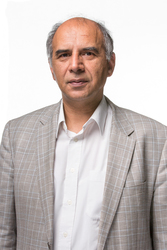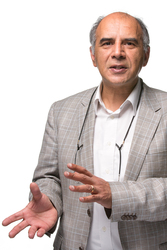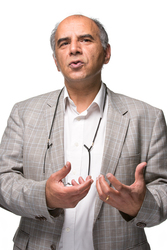Prof. Dr. Jamal Malik
University of Erfurt
Curriculum Vitae
Jamal Malik holds the chair for Islamic Studies at the University of Erfurt since 1999. His areas of expertise are inter alia the social and cultural history of South Asia, pluralism of religions, as well as Muslim societies in Europe. After completing his studies on Islamic studies and political science at the University of Bonn, Jamal Malik obtained his doctorate degree – with a stipend from the Konrad Adenauer Stiftung – from the University of Heidelberg in 1989, subsequently habilitating at the University of Bamberg in 1994. After teaching obligations at the University of Bonn and employment at the University of Heidelberg, he completed several research stays in India and Pakistan. Jamal Malik then worked at the École des Hautes Études en Sciences Sociales in Paris, as well as the Universities of Bamberg, Bonn, Ohio, Erfurt, Derby, New Delhi and Lahore. Further, Jamal Malik is founding member of the Annemarie Schimmel Forum in Bonn.
From October 2012 until September 2013, Jamal Malik was Fellow at the Käte Hamburger Center for Advanced Study in the Humanities “Law as Culture”.
Research Project
Fiqh al-da`wa or the juridification of Islamic mission
Against the backdrop of the heated debates in academic and political circles alike on the so-called holy war (jihad), the research project “Fiqh al-da`wa” deals with the contemporary, particularly legal, development of Islamic proselytism (da’wa: promoting the religion). The recent change of perspective of a specifically Muslim social action from jihad to da’wa is due to political Islam and its rise in the 1970s.
Social action in the frame of reference of jihad and da’wa has always been normatively determined throughout Islamic legal history. This has recently occurred in theoretical explanations particularly in the context of societal complexity that is growing (together), along with the concurrent differentiation and universalization of Islamity as well as the professionalization of the social actors involved. The growing number of works on fiqh al-akhlaq, fiqh al-tibb, fiqh al-ru’ya and also fiqh al-da`wa not only indicates the development of new legal terminology, but social action is also increasingly standardized and, in a way, juridified for a globalized Islamic proselytism. The so – not only self-referentially – negotiated and innovatively determined habitus further competes with normative ideals of traditional fiqh and its principles. Even the semantics of the division of the world established by Medieval Muslim legal scholars into dar al-Islam (area of Islam) and dar al-harb (area of war) has recently been expanded by Muslim Diaspora activists to include the dar al-da’wa (area of proselytism).
The project will empirically document these complex inner-Islamic discussions and attempt to reconstruct them in the context of “Law as Culture”.
Publications (selected)
- Islam in South Asia – A Short History, Leiden: E.J. Brill 2008; Indian Edition: Hyderabad: Orient Blackswan Ltd. 2012.
- Madrasas in South Asia. Teaching Terror? (Editor and co-author), London and New York: Routledge 2008.
- Sufism in the West (Co-editor and co-author along with John Hinnells), London and New York: Routledge 2006.




